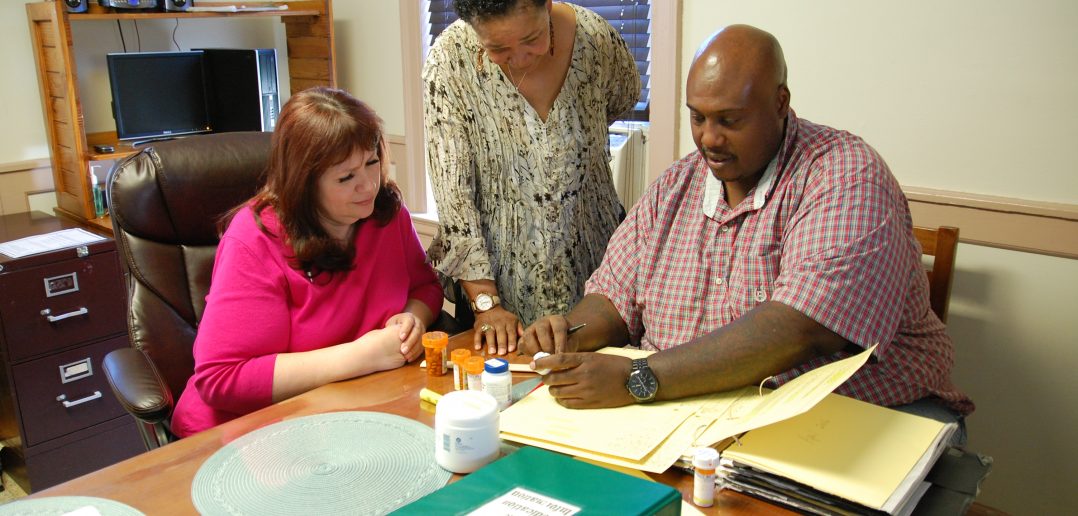Editor’s note: CSEA members who work for the NYS Office of People with Developmental Disabilities work with a wide range of individuals and circumstances. In some facilities, the work meets the state’s criteria for hazardous duty pay. Following years of dispute, CSEA has been successful in our fight to convince the NYS Division of the Budget to authorize the payments for affected employees.Here are the stories of some of those workers at a home on Staten Island:
STATEN ISLAND — Alphonzo Stubbs was escorting an individual out the door of his group home one day when his leg received a swift and powerful kick.
“He kicked backward and ripped the skin off my leg,” said Stubbs, a direct support professional. “I had no warning.”
For workers at some homes at Staten Island Developmental Disabilities Services Office (DDSO), Western New York DDSO, Taconic DDSO, and Finger Lakes DDSO, the decision was long overdue. “Every day, somebody gets hurt,” said Paula Guccione, a day shift supervisor who has suffered multiple injuries, including to her shoulder and finger.
While workers wondered about the long delay in recognizing and compensating them for work performed under these conditions, they are also relieved that their situation was finally acknowledged.
“Perhaps they saw how serious this situation had become,” said Guccione.
Julia Khamis, a direct support professional who works at a group home with women who range in age from their mid-20s to mid-30s, physical danger isn’t the only thing they endure.
“In this job, you also suffer from a lot of psychological and verbal abuse,” said Khamis, who was once nearly stabbed by an individual and still bears the scar of another incident on her right hand. “We’re human as well. We don’t take what they say and do personally, but it is taxing. I leave this job physically and mentally drained.”
Now that they’ve won the battle to receive hazardous duty pay, workers noted that they would like the state to improve the quality and safety of the homes and said individuals could benefit from more enriching daily activities and programs.
“You have to keep them active and busy,” said Stubbs. “There are less incidents and less behaviors exhibited.”
CSEA has made some important inroads towards improving services in the recently approved state budget .
Despite the trials and difficulties they often face, these group home workers expressed their overall satisfaction and joy in working and caring for these individuals and praised CSEA for not giving up on this fight.
“Thank God we have our union fighting for us,” said Stubbs. “We appreciate it.”
— David Galarza




